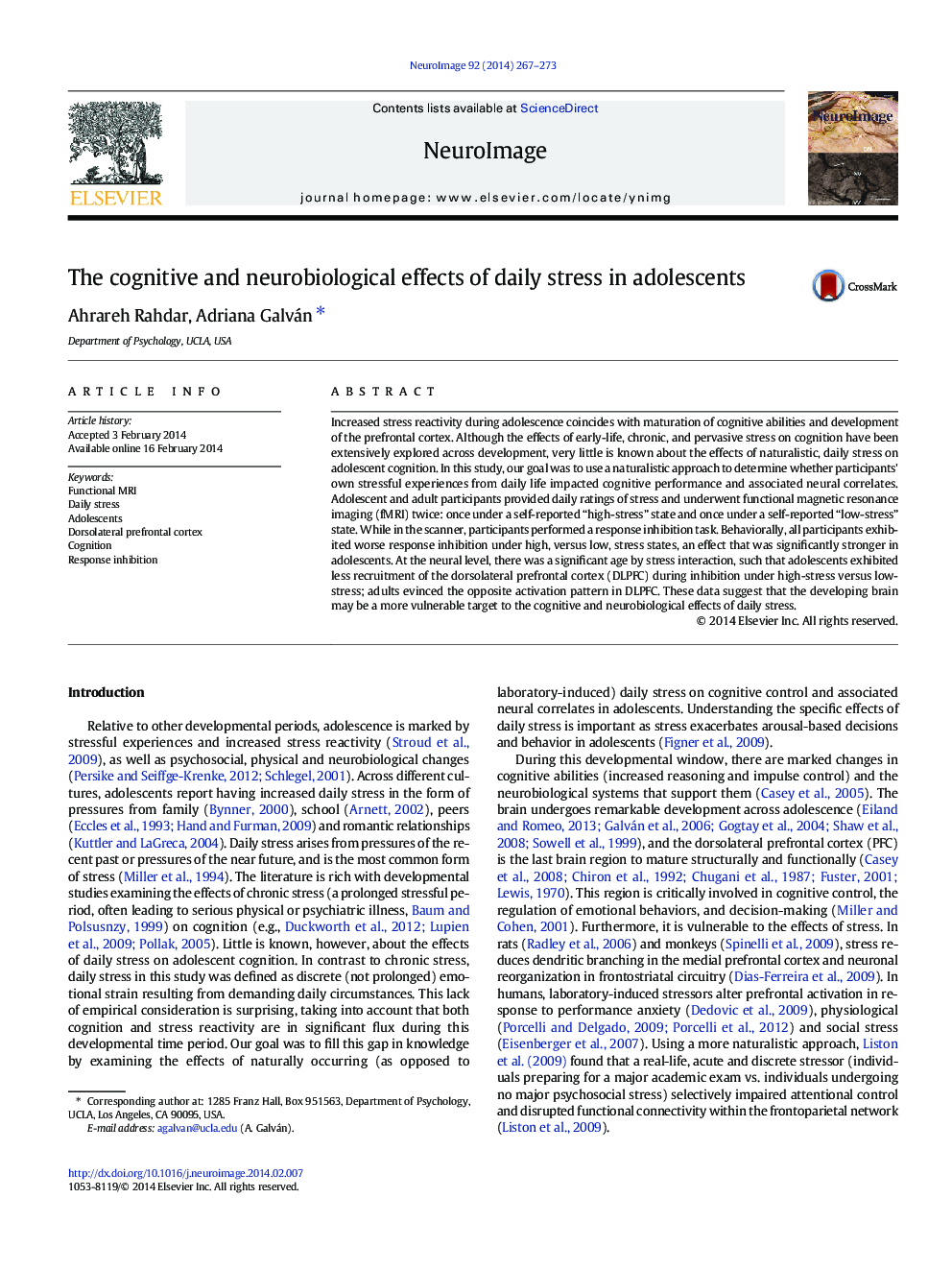| Article ID | Journal | Published Year | Pages | File Type |
|---|---|---|---|---|
| 6027605 | NeuroImage | 2014 | 7 Pages |
Increased stress reactivity during adolescence coincides with maturation of cognitive abilities and development of the prefrontal cortex. Although the effects of early-life, chronic, and pervasive stress on cognition have been extensively explored across development, very little is known about the effects of naturalistic, daily stress on adolescent cognition. In this study, our goal was to use a naturalistic approach to determine whether participants' own stressful experiences from daily life impacted cognitive performance and associated neural correlates. Adolescent and adult participants provided daily ratings of stress and underwent functional magnetic resonance imaging (fMRI) twice: once under a self-reported “high-stress” state and once under a self-reported “low-stress” state. While in the scanner, participants performed a response inhibition task. Behaviorally, all participants exhibited worse response inhibition under high, versus low, stress states, an effect that was significantly stronger in adolescents. At the neural level, there was a significant age by stress interaction, such that adolescents exhibited less recruitment of the dorsolateral prefrontal cortex (DLPFC) during inhibition under high-stress versus low-stress; adults evinced the opposite activation pattern in DLPFC. These data suggest that the developing brain may be a more vulnerable target to the cognitive and neurobiological effects of daily stress.
